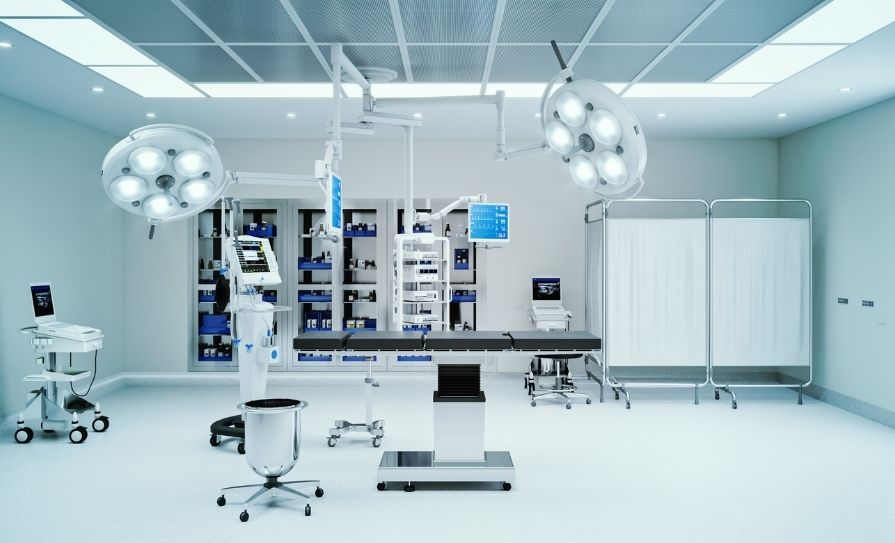Earlier this month, the Medical Protection Society (MPS) held a conference for general practitioners in the National Convention Centre, Dublin. Before the event, the Society released figures that showed how the claims environment has changed for GPs. According to data, there has been an increase of 76 per cent in the number of GP claims in Ireland from 2010 to 2017. The probability of a full-time GP receiving a claim has also doubled in the last decade, with the data showing they can expect to face one clinical negligence claim over a typical career. On average, the MPS receives about 60 claims per year relating to GPs. The highest amount paid out for such a claim is just over €6 million.
Director of Claims Policy and Legal with the MPS Ms Emma Hallinan told the <strong><em>Medical Independent</em></strong> (<strong><em>MI</em></strong>) that there are many reasons for the rising number of claims against GPs.
“We think it is multi-factorial,” according to Ms Hallinan.
“There are certainly increased patient expectations. There is also an obvious increase in the number of patients due to the increasing age of the population with an increasing complexity of problems. There is an increase in life expectancy. And accordingly, the cost of care is increasing as well. There is no doubt that there are issues around time and workload pressures on doctors. We also think there is greater awareness about the ability and knowledge of how to make a claim or a complaint. And of course we see plenty of lawyers advertising frequently as well, which is another contributing factor.”
<img src=”../attachments/2c6f68fa-3e90-4106-b521-5736b18f34f3.JPG” alt=”” />
<strong>Ms Emma Hallinan, MPS</strong>
<h3 class=”subheadMIstyles”>Reducing risk</h3>
The MPS advises that there are many things GPs can do to reduce the risk of having a claim brought against them, or defeating a claim.
“Obviously, the clinical records are absolutely key,” Ms Hallinan said. “What is written in the records is likely to trump anybody else’s version of events. Good practice is to ensure that the presenting complaint is well documented, the examination findings are documented — the diagnosis, the treatment plan — and there is evidence of safety-netting as well.”
Consent is another key factor, she added.
“It is important to ensure the patient has good awareness of the treatment being offered and understands what they are consenting to,” according to Ms Hallinan.
“I think what we would emphasise is that excellent record-keeping is the key to defeating a claim and also might prevent a claim being brought in the first place. We also run courses for our members in relation to continuing professional development and e-learning as well, to help them manage their own risk.”
<h3 class=”subheadMIstyles”>Litigious society</h3>
Echoing the findings about an increase in claims against GPs, a YouGov online survey on behalf of the MPS revealed that 87 per cent of Irish adults agreed that they are living in a litigious society, and more than half of the public (58 per cent) said it has now become easier to make a claim for clinical negligence. Regardless of whether any harm was caused, 54 per cent of respondents agreed that patients should have access to compensation when something goes wrong. However, only 37 per cent of them would bring a clinical negligence claim against a healthcare professional if they were dissatisfied about any aspect of the service they received.
Ms Hallinan said that the Society has been saying that the claims environment in Ireland has been “challenging” for some time. For example, last year the transactional expenditure — payments include legal costs, awards for damages, expert costs, etc — related to clinical claims by the State Claims Agency (SCA) was €248.88 million. This represents a rise of 20.6 per cent on the €206.4 million figure spent in 2016.
<h3 class=”subheadMIstyles”>High awards in Ireland</h3>
Ms Hallinan said that the awards offered by Irish courts are some of the highest in the world.
“We often see general damages, that’s the damages for ‘pain and suffering’, many multiples of what we would see in the UK. And we also see much higher legal costs at times as well. And in particular, when we compare barristers’ fees in Ireland and in the UK, Irish barristers often charge twice what they would for similar cases than they would in England and Wales. It is difficult to challenge or influence this area but if we continue to raise awareness, I think there is merit in that.”
Ms Hallinan said the MPS was encouraged by a case that went to appeal last year. The High Court had awarded €50,000 to the family of a young boy who cut his back when he fell onto an unprotected and damaged radiator valve. When it went to the Court of Appeal, the payment was reduced to €25,000, with the judge saying it was “possibly, if not probably, the smallest scar” she had ever seen.
“We believe that an award for similar damages in England and Wales would attract damages of £2,000,” according to Ms Hallinan.
“So there really is a substantial difference between the courts’ approaches. One of the things we think would be useful, though, would be the introduction of a standard set of guidelines, similar to the judicial study guidelines that we have here in England and Wales, which courts take notice of and it allows for greater consistency and predictability in terms of the awards of general damages that the courts can award.”
<h3 class=”subheadMIstyles”>Slow process</h3>
The MPS has been arguing for the introduction in Ireland of a pre-action protocol as a means to accelerate the speed at which claims are processed. The facility to introduce such a protocol is contained in the Legal Services Regulation Act 2015, but it still has not been introduced.
“What we have found is that the process of managing clinical negligence claims in Ireland is slow in comparison to some of the countries in which we manage claims,” Ms Hallinan said.
“And one of our key drivers of reform is the introduction of a pre-action protocol, which we see as being the opportunity to resolve a claim before it gets anywhere near a court by encouraging an open dialogue between the parties, early exchange of medical records and evidence, with the intention of establishing whether it is possible to resolve the claim without the need to proceed to formal court proceedings. We have seen that work very successfully in England and Wales, and increasingly so in Northern Ireland and Scotland as well. We would also recommend the introduction of specialist courts with much tighter timetables to ensure where proceedings are necessary, the case passes through the court system as quickly as possible.”
<h3 class=”subheadMIstyles”>Duty of candour</h3>
On the issue of open disclosure, Ms Hallinan said doctors have a duty to promote an open, learning culture. The MPS has advised its members that a meaningful apology is not an admission of liability; rather, it is an acknowledgment that something has gone wrong and a way of expressing empathy.
“We recognise, however, that this can be challenging for doctors as they remain fearful of blame or personal recrimination,” Ms Hallinan stated.
“While you can mandate open disclosure through legislation, it may not lead to a real behavioural change and there is a danger that it may even result in a ‘tick-box’ process when something goes wrong. This could mean that patients do not get the sincere apology and explanation they deserve. A cultural shift is needed. Clinicians need to feel confident to admit errors, apologise and learn from mistakes. They also need to feel supported at an organisational level, by leaders equally committed to the principles of open disclosure.”
<h3 class=”subheadMIstyles”>GP perspective</h3>
The President of the NAGP Dr Maitiú Ó Tuathail attended the MPS conference, which was held on 8 September. He told <strong><em>MI</em></strong> it was “concerning” to see the rise in claims against GPs.
“We are living in an increasingly litigious society and this is having a direct impact on how we are practising as GPs,” according to Dr Ó Tuathail.
“We have to compare what is happening in Ireland to what happens in other jurisdictions. The payouts in Ireland are multiples of what is paid out in the UK. We need to address the litigious culture that we now live in, as it is impacting on us all in many ways, be it medical insurance or car insurance. This involves ensuring consistency when it comes to rulings and compensation across the board.”
Dr Ó Tuathail added that he personally believes that general practitioners should be indemnified by the State Claims Agency, in the same manner as hospital doctors.
<img src=”../attachments/4a718339-fdc0-47ff-9bb3-a3b9dcb73d3e.JPG” alt=”” />
<strong>Dr Maitiú Ó Tuathail</strong>
“This is one of the many inequalities that GPs in Ireland experience,” he stated.
A spokesperson for the IMO said that while there has been an increase in the number of GP claims, “the overall probability remains low, at an average of one claim per GP over the lifetime of their career.”
“The increase in claims can most likely be correlated with the general increased levels of litigation in society and particularly with regard to medical claims,” according to the spokesperson.
“GPs provide over 20 million consultations with patients per annum and patient satisfaction with their GPs is measured at 91 per cent, as per a 2015 Medical Council survey.”













Leave a Reply
You must be logged in to post a comment.